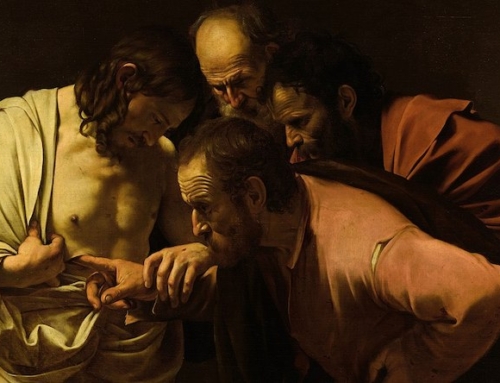As Catholics, we are called to fast (and abstain from meat) this week on the Friday called “Good.” We ought to embrace and cherish this day of fasting, rather than begrudgingly bear it. Fasting is a virtuous act that helps us pursue the good. To see why this is the case, we can examine three reasons to fast.
Fasting is an act that is done for the good; we are not merely depriving ourselves of food. In the act of fasting, we bridle our desire for bodily nourishment in order to grow in temperance. The Church’s tradition has long recommended that those who struggle most with sins of the flesh ought to fast in order to build the virtues needed to pursue bodily goods correctly. As Saint Paul VI explains, physical mortification “aims at the ‘liberation’ of man, who often finds himself, because of concupiscence, almost chained by his own senses. Through ‘corporal fasting’ man regains strength and the ‘wound inflicted on the dignity of our nature by intemperance is cured by the medicine of a salutary abstinence’” (Paenitemini, 2). As we fast and grow in temperance, our desires are healed and re-ordered; they themselves begin to move us toward a self-control that is prompt and cheerful, not reluctant and gloomy.
Further, fasting predisposes us to prayer and contemplation. There are many examples of saints, both in Scripture and subsequent Church history, who combined fasting and prayer. Moses, for instance, fasted for forty days on the heights of Mt. Sinai before receiving the tablets of the law (Deut 9:9). According to Saint John Chrysostom, “Fasting is nourishment for the soul . . . and just as bodily nourishment fattens the body, so fasting invigorates the soul, provides it with nimble wings, lifts it on high, enables it to contemplate things that are above, and renders it superior to the pleasures and attractions of this present life” (Homilies on Genesis, 1.9). This coming Friday, when we fast, God raises us up into the mystery of Christ’s passion.
Lastly, fasting helps atone for sin. While our actions cannot atone perfectly for sin, they do imperfectly satisfy for them. Because of Christ’s perfect atonement on the cross, the “love of God has been poured into our hearts by the Holy Spirit who has been given to us” (Rom 5:5). Since our fasting is motivated by love for God, we are able to unite our actions to the Cross of Christ and, in a small way, atone for our sins and give God honor. It is not only our own sins for which we can atone, however. In addition, we can fast in order to help atone for the sins of others. After the people of Israel committed the great sin of idolatry, Moses went back up Mt. Sinai and, again, fasted for forty days to atone for the sins of the Israelites (Deut 9:18). Because of our love for God and neighbor, we too deprive ourselves of bodily goods to intercede for our loved ones in need.
This Good Friday, we are called to fast by only eating one meal (though we are also permitted two smaller snacks that do not add up to a meal). This act of fasting helps us to appreciate more deeply the sacrifice of Christ and to enter into this sacred time. Our fasting helps us grow in virtue, pray more fervently, and unite ourselves to Christ who perfectly atones for sins. Food is good. Jesus is infinitely better. Our fasting this Friday manifests this truth.
✠
Photo by Engin Akyurt







